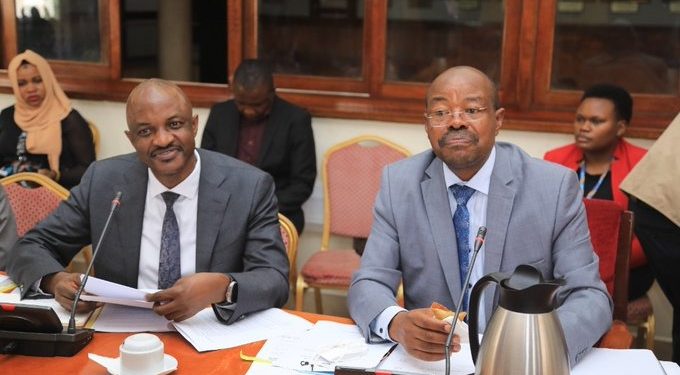The Ministry of Finance, Planning, and Economic Development has assured the Parliament of Government plans to rationalise tax incentives to realize its efficient and effective implementation.
This was revealed by officials from the Finance Ministry led by the State Minister for Planning, Amos Lugoloobi, who were appearing before the Committee on Finance over Uganda Tax Expenditures Report for FY 2020/2021 to 2021/2022 on Thursday, 01 December 2022.
Over time, Parliament has been concerned about the rising tax expenditures and called for a legal tax review and comprehensive evaluation of the benefits of tax exemptions given to investors for the last 10 years.
The Permanent Secretary/ Secretary to the Treasury, Ramathan Ggoobi, told the committee that the government is implementing a Tax Expenditures Rationalisation Plan over the medium term to streamline tax incentives.
“We are aware of the weaknesses we have been having in the way we have been managing these tax expenditures and we have put in place a tax expenditure rationalization plan with the help of our development partners, specifically the International Monetary Fund,” Ggoobi said.
According to Ggoobi, the rationalisation plan will entail criteria of choosing beneficiaries, timeframe, and the purpose of the tax incentive and also sunset clauses which will inform the investors who intend to benefit of their obligations which must be met on time.
“This rationalisation plan will also help in cost-benefit analysis. We shall be able to tell the number and nature of jobs provided through the tax incentives and also contribute to our import substitution strategy,” he said.
However, Ggoobi noted that this tax expenditure rationalization plan is not to stop tax incentives but to ensure that they are effective and beneficial to the economy.
In FY 2023/2024, Government proposes to review tax expenditures on capital incomes, unify tax rate on capital income, and review exemptions on supplies of some machinery, tools, and input suitable for use in agriculture.
For the last three financial years, Government has forgone revenue amounting to Shs11.7 trillion on tax incentives. According to the Finance Committee, this is extremely high and could be disastrous to the country’s Gross Domestic Product (GDP).
“We need the Ministry of Finance to lay evidence that we are having benefits as a result of these tax expenditures. We need to reduce tax expenditures like Kenya has done so in the past five years,” Committee Chairperson, Hon Keefa Kiwanuka, said.
Minister Lugoloobi said since Government introduced tax incentives in the 1990s, key objectives of the Domestic Revenue Mobilisation Strategy have been met such as reduced importation of products, employment, and an increase in locally manufactured products among others.
Hon Jane Avur Pacuto (NRM, Pakwach district) said whereas the rationalization plan is a move in the right direction, the Ministry of Finance needs to tighten the grip on investors who receive incentives but do not show tangible results over time.









